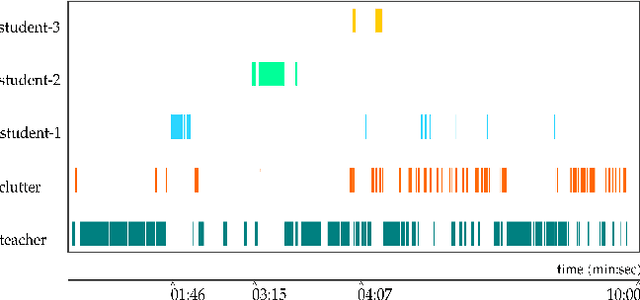Automated Anonymisation of Visual and Audio Data in Classroom Studies
Paper and Code
Jan 14, 2020



Understanding students' and teachers' verbal and non-verbal behaviours during instruction may help infer valuable information regarding the quality of teaching. In education research, there have been many studies that aim to measure students' attentional focus on learning-related tasks: Based on audio-visual recordings and manual or automated ratings of behaviours of teachers and students. Student data is, however, highly sensitive. Therefore, ensuring high standards of data protection and privacy has the utmost importance in current practices. For example, in the context of teaching management studies, data collection is carried out with the consent of pupils, parents, teachers and school administrations. Nevertheless, there may often be students whose data cannot be used for research purposes. Excluding these students from the classroom is an unnatural intrusion into the organisation of the classroom. A possible solution would be to request permission to record the audio-visual recordings of all students (including those who do not voluntarily participate in the study) and to anonymise their data. Yet, the manual anonymisation of audio-visual data is very demanding. In this study, we examine the use of artificial intelligence methods to automatically anonymise the visual and audio data of a particular person.
 Add to Chrome
Add to Chrome Add to Firefox
Add to Firefox Add to Edge
Add to Edge